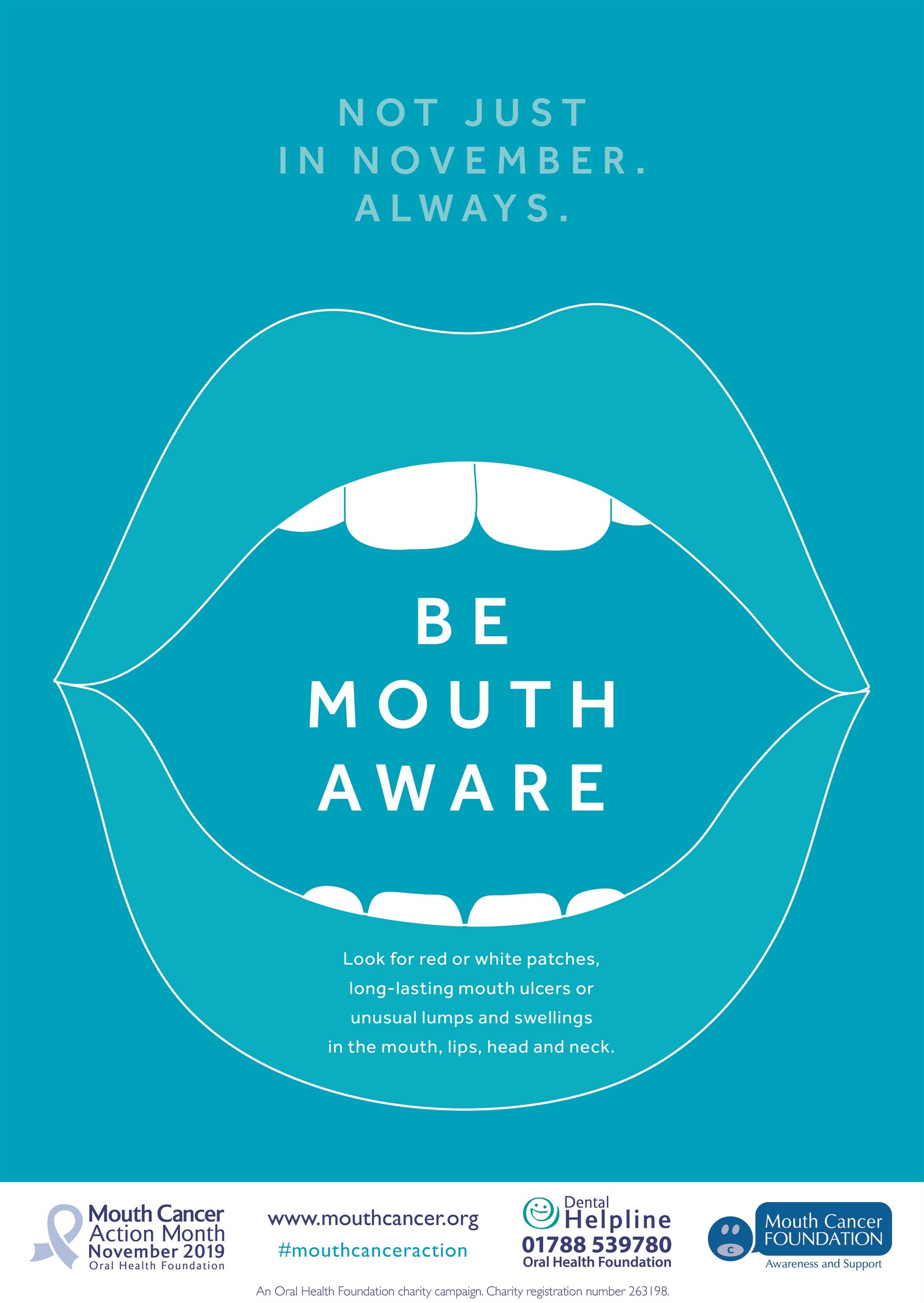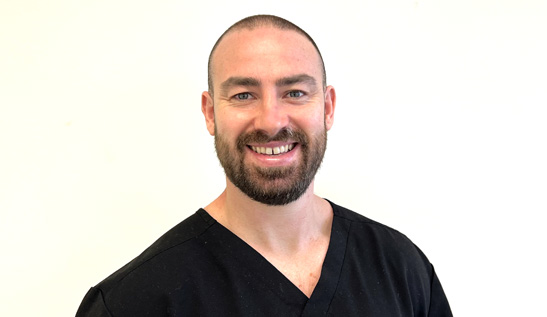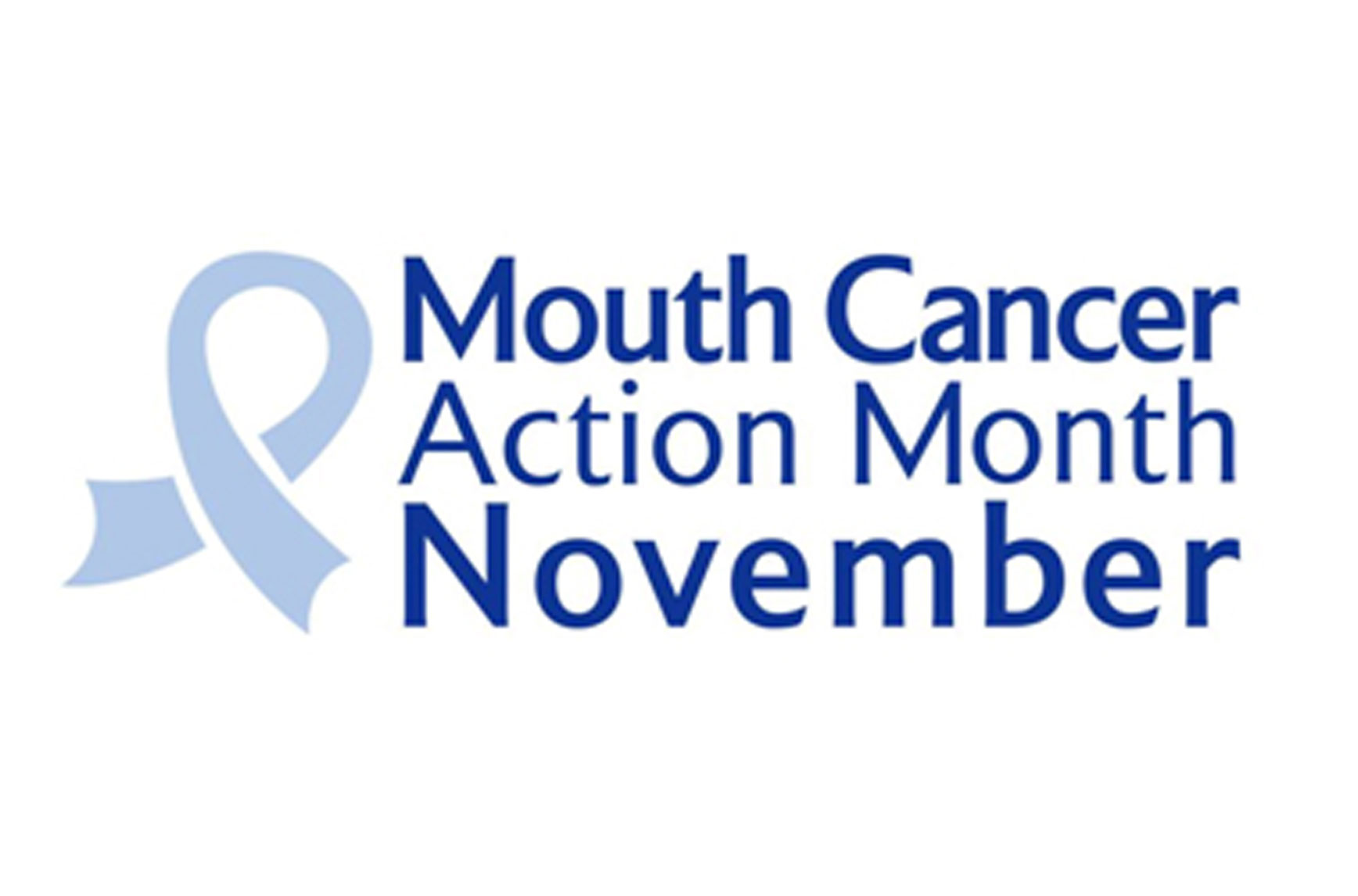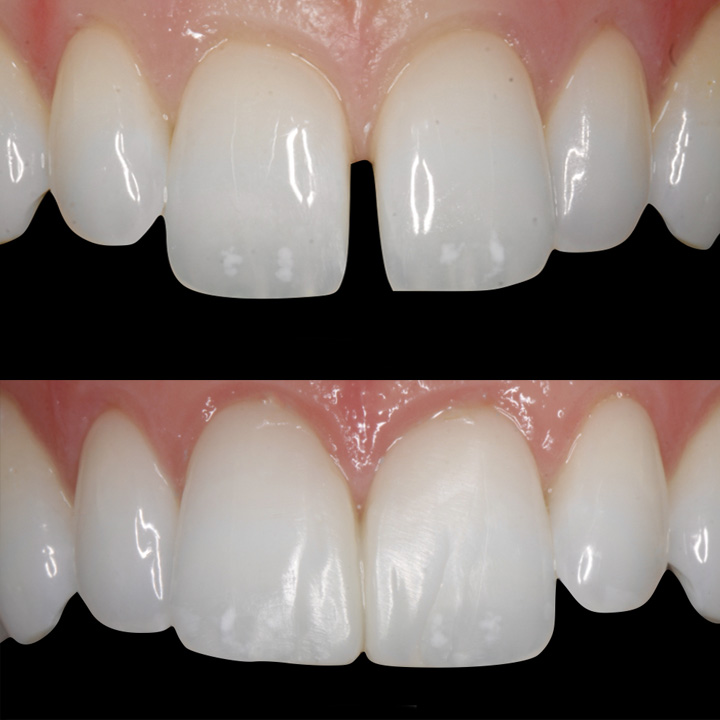
With mouth cancer rates increasing by over 40 percent in the last decade it has become one of the UK’s fastest growing cancers and it is up to our dentist to check for the early warning signs.
Do you think about mouth cancer? Many of us may see a trip to the dentist as a chance to get a quick scale and polish, perhaps a filling or two, maybe even some light cosmetic work, such as teeth whitening or composite bonding – but according to a new nationwide survey arguably their most important job goes unnoticed.
Yet, results from a recent survey by the Oral Health Foundation reveal only 15 percent of us believe the dentist to be checking our mouths for the early symptoms of a disease which kills someone every five hours in the UK.
Almost two thirds of us didn’t know whether our dentist looks for any symptoms of mouth cancer during a routine check–up while the remaining quarter did not think they were being examined at all.
Chief Executive of the Oral Health Foundation, Dr Nigel Carter, wants to reassure you that checks do take place during your regular dental visit.
Dr Carter said: “During your routine dental check–up your dentist or hygiensist performs a full examination of not only the teeth and gums, but the cheeks, tongue and floor of the mouth too. They look for anything unusual in the mouth. With the number of new mouth cancer cases increasing greatly each year, everyone throughout the profession understands how important it is to check for any symptoms.”
The importance of early detection speaks for itself – 9 in 10 people survive mouth cancers that are caught early yet as most people are only diagnosed late in the disease the five year survival rate remains as low as 50 percent.
The survey was carried out by the British Dental Health Foundation as part of November’s Mouth Cancer Action Month and quizzed over 1,000 people throughout the UK.
The campaign aims to tackle the importance of checking our mouth for any unusual red or white patches, unusual swellings in the mouth or neck or an ulcer that does not heal within three weeks.
All these are potentially signs of something being wrong and you should go along to your dentist or doctor – ‘If in Doubt Get Checked Out!’
Previously, the disease has been five times more common in men than women, however recently, more women than ever are being diagnosed and it is now only twice as common in men as women. Age is another factor, with people over the age of 40 more likely to be sufferers, though more young people are now being affected than previously.
Dr Carter added: “The main risk factor for mouth cancer is tobacco use with alcohol the second most common and people who smoke and drink to excess are 30 times more likely to develop the disease. Recently, HPV, the human papilloma virus, also responsible for cervical cancer has also been discovered to be a cause. Spread by oral sex, over three quarters of women will be affected at some time in their lives and as a result we are seeing more younger people affected.
“Next time you visit your dentist, ask about the disease, its symptoms and how to check for them at home – you might be surprised about how much knowledge you go away with.”
For further information visit the dedicated campaign website mouthcancer.org, alternatively, the National Dental Helpline is available Monday to Friday for free and impartial expert advice on 0845 063 1188.
If you need a new dentist please visit our new patients page here.
Mouth Cancer Facts & Figures
At Far Headingley Dental Care we routinely screen for signs of oral cancer as part or our patients routine check-ups. This approach has helped us identify over the years a handful of patients who were then diagnosed with oral cancer. The good news is that all of these people made a full recovery, because it was spotted early enough.
Here is some useful information from the British Dental Health Foundation who are running Mouth Cancer Action this November. As the month draws to a close, we thought it useful to share this information…
Latest figures show that in 2011, there were 6,767 people diagnosed with mouth cancer in the UK
That’s 18 people every day – one person diagnosed every 77 minutes
Mouth cancer cases have increased by a third in the last decade…
…and it is one of few cancers that experts predict will continue to increase in the coming years
Mouth cancer is ranked the 16th most common cancer in the UK
The lifetime risk of developing mouth cancer is 1 in 84 for men and 1 in 160 for women
Cancer of the tongue and oral cavity are the most common forms of mouth cancer, followed then by the throat. Lip, neck and other mouth cancers make up the rest of cases
Mouth cancer is twice as common in men than women
86% of cases are diagnosed in those over 50
Mouth cancer rates per population are significantly higher in Scotland compared with England, Northern Ireland and Wales
Rates are much higher in white males, however those in Asian males are similar
More than 90% of mouth cancers in men and 85% in women are linked to lifestyle and environmental factors
Two thirds of mouth cancer cases are linked to smoking tobacco
A morning cigarette doubles the chances of developing the disease
Smokers put themselves at almost three times higher risk
…but cigars and pipe smokers put themselves at greater risk
Ex-smokers reduce their risk by a third
Second-hand smoke significantly increases the risk for those who have never smoked
Smokeless tobacco use can increase the risk of developing mouth cancer by 15 times
Drinking alcohol to excess is linked to around a third of all cases
Those who smoke and drink to excess put themselves at risk by up to 30 times
More than half of cases in the UK are linked to a poor diet
Solar radiation from the sun has been linked to cancer of the lip
The human papillomavirus (HPV) is estimated to overtake smoking as the number one cause of mouth cancers in the future
Mouth cancer is 2.5 times higher in those with periodontal disease
…and is 60 times higher in people with six or more missing teeth
Mouth cancer is 12 to 16 times higher in those who have previous been diagnosed with cancer
Mouth cancer is 70% more common in those whose family have a history of the disease








